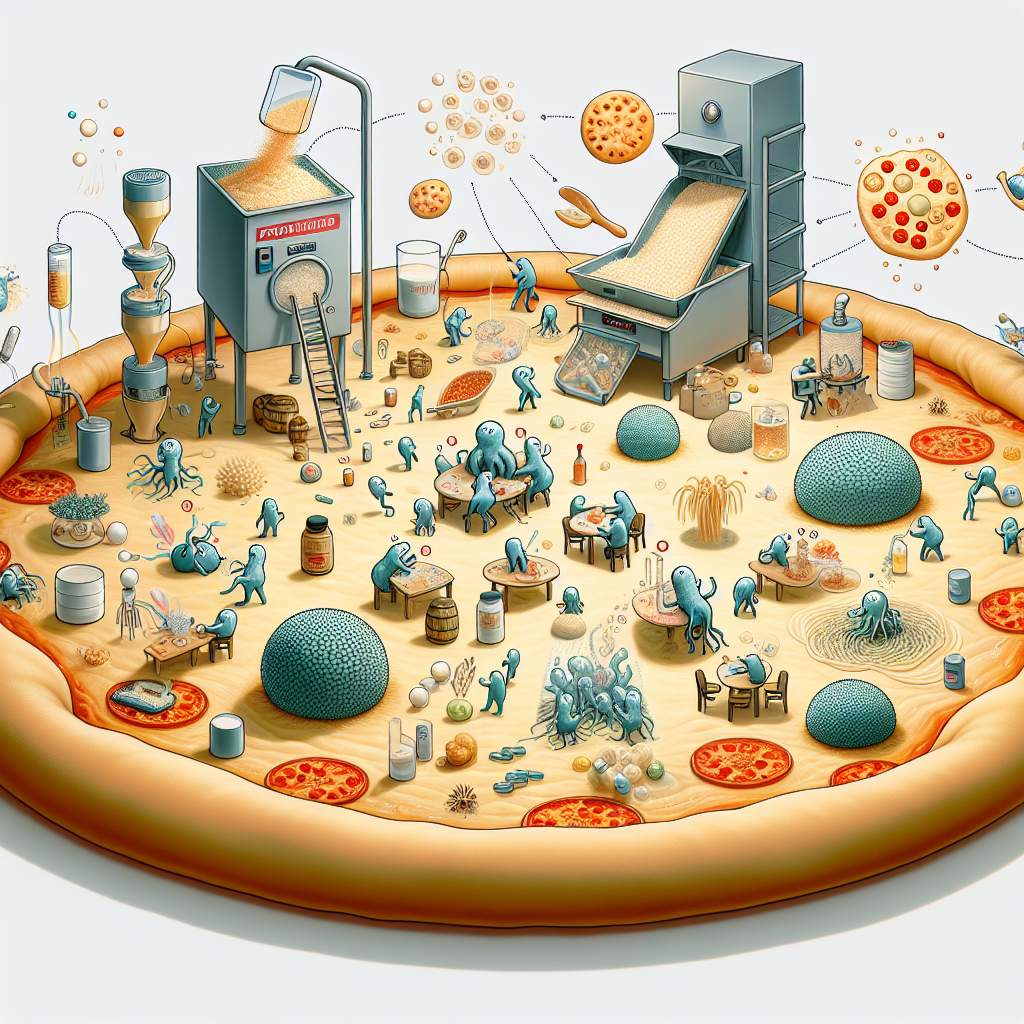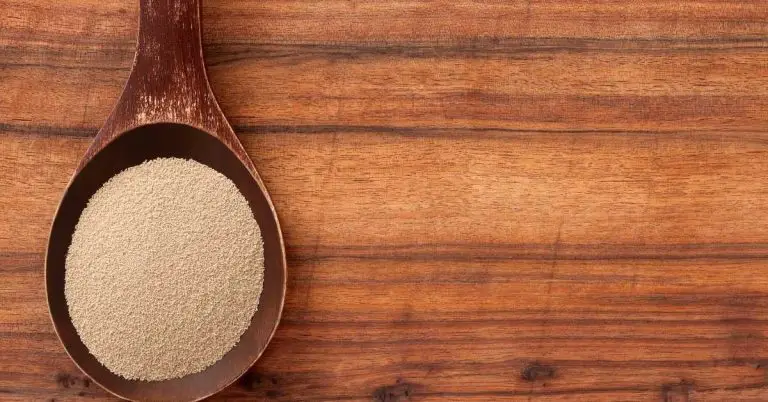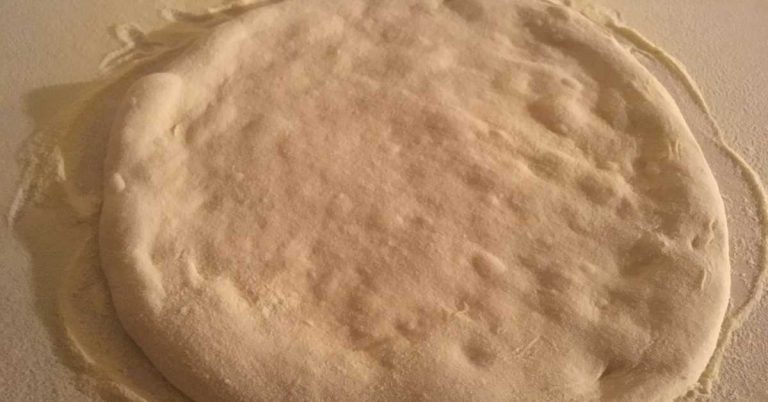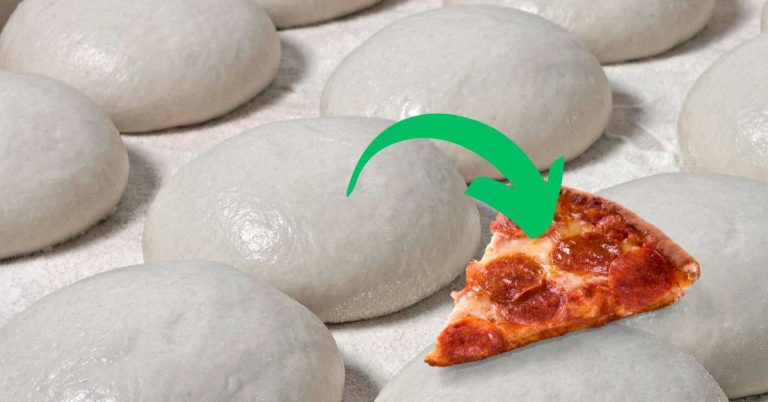How Does Fermentation Affect Poolish Pizza Dough?
The science behind poolish fermentation lies in the slow development of yeast activity, which enhances dough flavor and texture. As the yeast ferments, it breaks down complex sugars into simpler ones, creating alcohol and carbon dioxide. This not only contributes to a superior taste but also to a light, open crumb structure in the pizza crust.
A big secret behind the delicious taste of puffy, airy pizza crust is something called fermentation. Fermentation is a process that helps make the pizza dough fluffy and tasty. Today, we’re going to dive into how fermentation, particularly in a type of dough called “poolish pizza dough,” makes such a big difference in the pizza’s final taste.

Understanding Poolish
First off, what is poolish? Poolish is a type of pre-fermented dough used in baking. It’s pretty wet, made with equal parts flour and water, and just a little bit of yeast. This mixture sits and ferments for several hours or even days. Poolish is different from other pre-ferments like “biga” or “sponge” because of its high water content and how it’s made. Using poolish in pizza dough has lots of benefits. It helps make the dough easier to shape, gives the pizza a light, airy texture, and adds a wonderful flavor that you can’t get from dough made right before baking.
The Basics of Fermentation
So, what’s happening during fermentation? When you mix flour, water, and yeast, the yeast starts eating the sugars in the flour. This process creates gas (mostly carbon dioxide) and alcohol. The gas gets trapped in the dough, making it rise and become fluffy. Fermentation is not just about making the dough rise; it’s also about developing flavor and texture. Yeast and bacteria play a big role in this. They help break down the proteins in flour, which affects how the dough behaves and tastes. This process is crucial for developing strong gluten, which gives the dough its stretchy and chewy texture.
Impact on Dough Structure
As the dough ferments, its texture changes a lot. It goes from being a rough, sticky mass to something smooth, elastic, and easy to shape. Fermentation is key to making the dough strong and stretchy, which is exactly what you want for a good pizza base. It also makes the dough more hydrated, which means it can absorb more water without getting too wet or sticky. This is super important for handling the dough and getting that perfect pizza crust texture. In short, fermentation does a lot more than just make the dough rise. It’s essential for making the dough easy to work with and delicious.
| Fermentation Process | Effect on Dough Structure | Effect on Flavor |
|---|---|---|
| Yeast Fermentation | Increases volume and lightness by producing CO2. Develops gluten structure for elasticity and strength. | Adds complex flavors through alcohol and organic acids production. Enhances bread aroma. |
| Sourdough Fermentation | Improves texture and creates a more robust structure due to lactic acid bacteria. | Produces tangy or sour taste, contributing to depth of flavor from lactic and acetic acids. |
| Bacterial Fermentation (e.g., Lactobacillus) | Contributes to dough conditioning, making it softer and more extensible. | Introduces unique sour and tangy flavors, enhancing the overall flavor profile of the dough. |
Flavor Development
Fermentation is like a magic process that makes pizza dough taste amazing. When dough ferments, it starts to develop complex flavors that make your pizza unique. If you let your dough ferment for a long time, it can even start to taste a bit sour, which some people really love. This sourness and the special aroma that comes from fermentation are what make your pizza stand out. It’s interesting to see how different the flavors can be when you compare dough that has fermented for a short time to dough that has fermented for a long time.
Optimizing Fermentation Conditions
To get the best fermentation for your poolish pizza dough, you need to keep an eye on the temperature and humidity. These two factors are super important. If you get them right, your dough will turn out just how you want it. The time you let your dough ferment also plays a big role in how your pizza will taste and feel. By changing these conditions, like how warm or moist the air is, you can make your dough exactly how you like it.
Troubleshooting Common Issues
Sometimes, things don’t go as planned when you’re fermenting your dough. If your dough ferments too much, it can get too soft and might not bake well. On the other hand, if it doesn’t ferment enough, your pizza might not have that special flavor and texture you’re looking for. But don’t worry! With some practice, you can learn to spot these issues and fix them. This way, you can make sure your pizza turns out great every time.
Final Thoughts
Fermentation is a key step in making poolish pizza dough that you can’t skip. It’s what gives your pizza that special taste and texture. By playing around with how long and under what conditions you ferment your dough, you can become a real pro at making pizza. Remember, making great pizza dough is all about understanding how fermentation works. So, don’t be afraid to experiment and find what works best for you!






